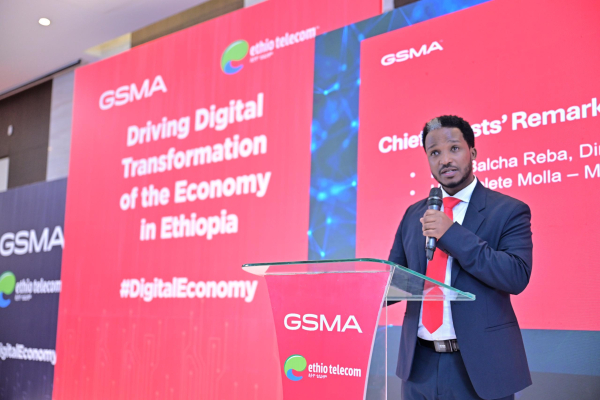With digitalization on the rise worldwide, Ethiopia is setting ambitious goals for its digital economy. A recent report by GSMA, in partnership with Ethio Telecom, forecasts that Ethiopia’s digital sector could add 1.3 trillion ETB (around $10.8 billion) to GDP by 2028.
Titled “Driving Digital Transformation of the Economy in Ethiopia: Opportunities, Policy Reforms, and the Role of Mobile,” the report links this growth to telecom reforms and investments in mobile tech, which are expected to boost agriculture, manufacturing, and public services. The report anticipates these advancements will create over a million jobs and bring in 57 billion ETB in tax revenue.
Under the Home-Grown Economic Reform (HGER) program, telecom improvements led to the sector contributing 700 billion ETB to GDP and 57 billion ETB in tax revenue by 2023. Mobile internet usage has also surged, with a 65% rise in connections and an eightfold expansion of 4G coverage, fueled by Ethio Telecom and Safaricom Ethiopia investments. GSMA projects 50 million Ethiopians could be connected to mobile internet by 2028, driving significant growth across industries, adding 140 billion ETB to agriculture and 114 billion ETB to manufacturing.
Challenges in Expanding Digital Adoption
Yet, obstacles remain, as 76% of Ethiopians still lack mobile internet access, and women’s internet use trails by 40%. Addressing these gaps is key to achieving widespread digital inclusion.
GSMA’s recommendations to overcome these challenges include reducing mobile service costs, expediting telecom reforms, increasing device accessibility, and expanding mobile money services. Digitalization is a core aspect of Ethiopia’s Vision 2025, aiming to improve productivity and expand economic opportunities.
Angela Wamola, GSMA’s Director for Sub-Saharan Africa, noted, “Ethiopia has the potential to lead East Africa’s digital revolution. By advancing strategic reforms and improving digital access, Ethiopia can unlock tremendous economic and social gains.”

